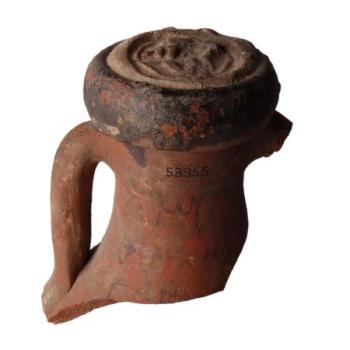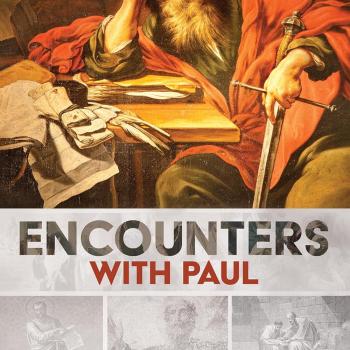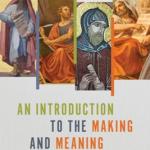One of the perennial problems Christian readers of the Bible have is figuring out the relationship of the OT to the NT, or the old covenant to the new covenant, and in particular the relationship of the Mosaic covenant to the new covenant. Too often what happens in conservative Protestant circles is that the Bible is read in a flat way, such that it is assumed that anything said in the OT is just as revealing of God’s good and perfect will or highest and best for humankind as anything said in the NT.
Sometimes this is even linked to an assumption that such a hermeneutic is required if you are going to have ‘a high view of Scripture’. And sometimes this whole line of thinking is held at arms length by discussions about ‘progressive revelation’. As much as I agree that we must indeed see the earlier revelation in light of the later and fuller revelation in Christ, this is not the whole story.
In his discussion of the issue of marriage in Mark 10 and Matthew 19 Jesus interjects a remark as to ‘why’ exactly Moses gave the teaching he did, allowing divorce. He calls it ‘sklerokardia’ the spiritual hardening of the arteries, or as we more conventionally call it— ‘because of hardness of heart’. Now the importance of this is not just that God is aware of our spiritual condition, but that God gave his instructions with this condition in mind.
And Jesus is now saying that now that the Kingdom is breaking into human situation those rules don’t apply any more. He is suggesting that there was an original creation order intention of God, when it comes to marriage. But apparently Jesus thinks that the coming of the Kingdom involves all kinds of other new arrangements as well— for example arrangements in which disciples foreswear violence all together, and
promise to love enemies and pray for those who persecute them and turn the other cheek.
And this leads to the following point. If God, in his graciousness condescends to teach us in ways and at the level which we can receive it, and if there is a major difference between what is the case once Jesus and the Spirit have come compared to what was the case before those two things happened when it comes to human ability to receive, believe, and live by God’s always intended highest and best for his people, then this changes entirely how we should view ever so many things in the OT.
Take for example the famous ‘lex talionis’— an eye for an eye, a hand for a hand…a life for a life’. This was God’s attempt to limit, not license revenge taking. God knew we would be doing it anyway, and so what he is saying is—- ‘only an eye for an eye, only a hand for a hand…’ and so on. In other words, there are all sorts of teachings in the OT that take into account not only the lack of the indwelling Spirit which changes the human heart, but the presence of hardness of heart in God’s people. Now once this basic principle—announced by Jesus, and then implemented by Paul and James and Peter, is understood, it really will revolutionize the way one reads so many things in the OT.
Take for example Levitical Law, including laws about stoning children etc.
We should never take such statements as a clear revelation of either God’s divine character or his highest and best will for his people. We should take them as God’s attempt to limit the harm and sin and mis-steps his people were already taking. And this is all the more the case when we are dealing with the harem or holy war stuff in Joshua and Judges. This is hardly God’s preferred course of action for his people to take. Think about it for a minute. Do we really believe that God couldn’t have just gotten all of the strangers out of the land by various means other than through the harem or human warfare? Of course he could have done so. But his people were determined to fight like other nations, demand a king like other nations, play politics like other nations…. and so on.
What we see throughout much of the early part of the OT is God’s attempt to deal with his fallen and sinful people who behave very much like other ANE peoples, sometimes quite barbarically. The point is that God is trying to limit their vengeance, limit their propensity to divorce, limit their bad behavior in general— hence the Mosaic laws of various sorts.
But when Messiah comes, and the Kingdom with him, new occasions teach new duties. This is not to say that there is not a recapitulation of some essential OT teaching by Jesus and the early Christians, which we find in the NT. There is. It is the positive teaching God gave that was not merely an attempt to restrain ancient sin. Teaching like ‘love the Lord your God with all your heart, and neighbor as self….’ And so on.
I could say a good deal more on this subject, but here will simply draw three conclusions: 1) the only safe and appropriate way for Christians to read the OT and draw conclusions about God’s will and character is to read it in the way that Jesus and his followers did— with the eyes of Christ, and in light of the coming of the Kingdom and the Spirit; 2) only those teachings in the OT that are reiterated and reaffirmed in the NT or are a legitimate extension of something said in the new covenant are binding on Christians; 3) one should never mistake God’s attempts to deal with God’s people where they are in their spiritual progress in the OT as the clearest revelation of the character and will of God for any of his peoples since Jesus and the Spirit have come. A Christian reading of the OT must be normed and guided by the sort of principles we find in the NT on the lips of Jesus and others.

















